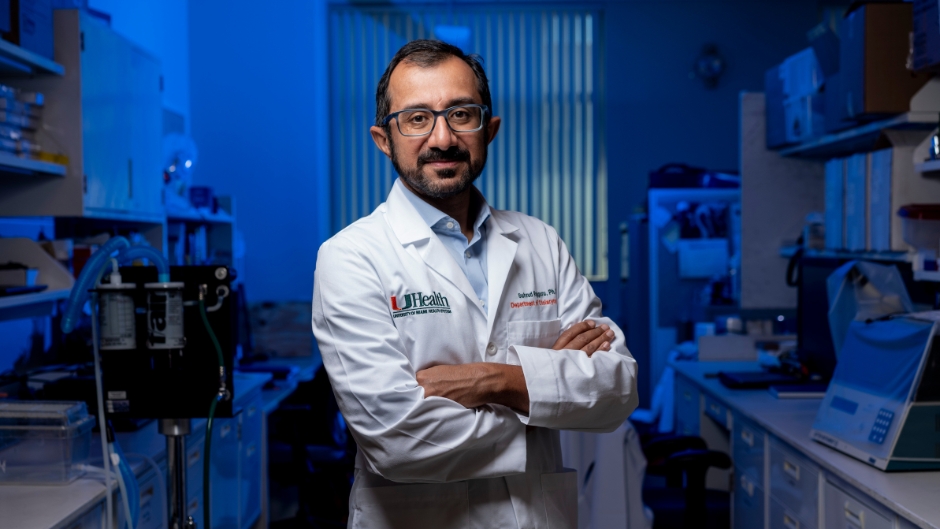The University of Miami has been selected by the National Science Foundation (NSF) to join the Innovation Corps (I-Corps) Hub South Initiative, a program designed to turn academic research into real-world impact. Led by the Georgia Institute of Technology, the 5-year, $15 million investment unites eight universities across Florida, Georgia, Alabama, and South Carolina to promote innovation and entrepreneurship across the region.
The I-Corps Hub South initiative will train and mentor university professors, students and staff as well as community partners helping them transform their scientific discoveries, concepts and ideas into commercial products that help improve everyday lives. The University of Miami will lead evaluation of the Hub’s progress, ensuring entrepreneurial training reaches a diverse range of entrepreneurs, particularly from underserved communities.
Suhrud Rajguru, professor in biomedical engineering and otolaryngology, will lead the University-wide effort. As an entrepreneur in RestorEar and an I-Corps instructor, he recognizes the importance of this Hub and the role it will play in preparing University of Miami students, staff and faculty.
“The support for our Hub by NSF will be truly transformational for this region,” said Rajguru. “Together we will push the boundaries of innovation, entrepreneurship, and economic impact through training and preparing a workforce ready to extend their focus beyond the University. It’s a powerful opportunity to harness diverse expertise and inspire the next generation of innovators. We’re building a vibrant ecosystem that will drive breakthrough discoveries and bring impactful solutions to our communities.”
Other collaborating institutions in the I-Corps Hub South include Clemson University, Morehouse College, University of Alabama, University of Central Florida, University of Florida, and University of South Florida. Nakia Melecio from Georgia Tech will serve as the director of the NSF I-Corps Southeast Hub, with Keith McGreggor as the lead faculty and Instructor for the Hub. Together, these institutions could help transform the region’s agriculture- and tourism-based economy into a hub for science and technology commercialization.
Sandra Rieger, associate professor of biology at the University, participated in a prior I-Corps@NCATS program.
“The I-Corps program has a rigorous customer discovery process, which enabled us to engage directly with industry leaders, business development experts, and likeminded individuals at UM to define our customers and their needs,” said Rieger. “Through this framework, we conducted targeted interviews with key opinion leaders, gaining invaluable feedback that directly shaped our chemotherapy-induced peripheral neuropathy drug development process.”
Rieger went on to found Avantyx, an academic spin-off company, to develop small molecule drugs for the treatment of peripheral neuropathy. She successfully received grant funding from the National Cancer Institute’s Small Business Technology Transfer program.
The University of Miami has a robust network to support entrepreneurship, including the Coulter Center for Translational Research, which provides up to $125,000 annually for faculty-led commercialization projects, and The Launch Pad, a center that supports students, faculty, and alumni in launching ventures. The University Student Startup Accelerator (USTAAR) also boosts student-led startups with $1 million in annual seed funding.
The University’s I-Corps@NCATS program, launched in 2017 with support from the National Center for Advancing Translational Sciences, trains clinical science teams in customer discovery, accelerating innovation in health care. Led by Rajguru, the program has trained over 500 teams and pioneered a train-the-trainer model that enhances the Hub’s regional impact.

